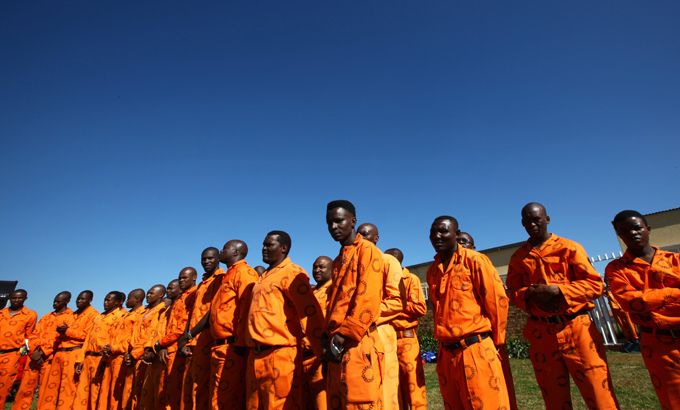
Parole Camp
A former prison warden works with young South Africans to free them from a cycle of drugs, crime and imprisonment.
Filmmaker: Maanda Ntsandeni
Each year in South Africa’s Cape Flats region, more than 1,000 youths are released from prison on parole. Many of these parolees will return to jail within a few weeks – unable to re-integrate into their communities or to avoid being caught up in the vicious circle of gangs, drugs and crime that is life for many in the townships.
Keep reading
list of 4 itemsWest Africa’s Sahel becoming a drug trafficking corridor, UN warns
Behind India’s Manipur conflict: A tale of drugs, armed groups and politics
Why are some countries decriminalising drugs?
But, for a lucky few there is an alternative. Solomon Madikane is a former prison warden who was so frustrated by the endless cycle of law-breaking and incarceration that he left his job and set up the Realistic prisoner reintegration programme in 2004. Based in the Cape Flats townships, Realistic has an extraordinary success rate: 95 per cent of the parolees who complete the programme have successfully turned their back on crime.
From the early days of Realistic, Solomon has been motivated by a desire to give parolees a second chance.
In this film, Witness goes to the Cape Flats to observe the work Solomon and his co-workers do for some of the most disadvantaged youth in South Africa. We meet two of the Realistic parolees – Thabo and Thando – and learn just how strong they have to be to leave the attractions of a life of drugs and crime behind.
Update:
Since Parole Camp was made Thabo has taken part in a professional chefs programme with the help of Realistic and is now working in one of Cape Town’s restaurants. Thando was sent to Bosasa, in Cape Town, a juvenile centre, and is eligible for release in June. Solomon Madikane continues to work with young people hoping to turn their lives around before it’s too late.
FILMMAKER’S VIEW
By Maanda Ntsandeni
My journey to making Parole Camp began four years ago when a friend, Andrew May, invited me to South Africa’s Pollsmoor Prison. Andrew, an American studying for his Masters of Law degree, was running a class on the Restorative Justice System for inmates approaching their release.
Like many South Africans frustrated by the country’s soaring crime rates, I was deeply prejudiced towards anybody who had served time in prison – choosing to focus on my belief that they deserved punishment while overlooking the fact that they had served their dues behind bars.
But on that day in Pollsmoor Prison, when a woman in her forties stood up to tell her imprisoned husband of the difficulties she encountered in raising their children alone, I came to understand that crime takes its toll not only on the victims but also on the families of the perpetrators.
The message that woman conveyed was that her sons, raised without a father’s presence in their lives, were now following in their father’s footsteps while she struggled to assert any kind of authority over them.
During the class, many others took their turn to speak out about how they had been impacted by the actions of their imprisoned children. In this emotionally charged atmosphere, some cried openly while others stifled sobs.
As tears welled up in my eyes, my attitudes were transformed.
Later that same day, I met Solomon Madikane, a former prison warden who, in 2004, set up a prisoner reintegration programme with the aim of stopping parolees in the Cape Flats region of South Africa from re-offending and ending up back behind bars. Solomon told me about how Realistic works with young people at risk of returning to prison for violating their parole conditions.
I knew right there and then that this was a story I wanted to share with the world.
That was where the journey began. But making Parole Camp would prove to be my greatest challenge in documentary filmmaking yet – not least of all because of the prejudice widely felt towards former prison inmates.
But meeting those desperately trying to change their lives drove me on, even when it became clear that I would never find financing for the film.
I have great admiration for the young people who have passed through Solomon’s programme, despite facing the daily challenges of getting by in an area decimated by drugs and where most have only a very minimal chance of making something of their lives.
And I was moved by what Solomon has been able to achieve in less than five years with Realistic, often with no resources at all. His methods captivate the participants, completely transforming them by the time the programme ends.
Solomon is a hero in a place where hopelessness is everywhere and, yet, he remains the most humble person I have ever met. His indomitable spirit and belief in me as a filmmaker made something seemingly impossible, the making of this film, possible.